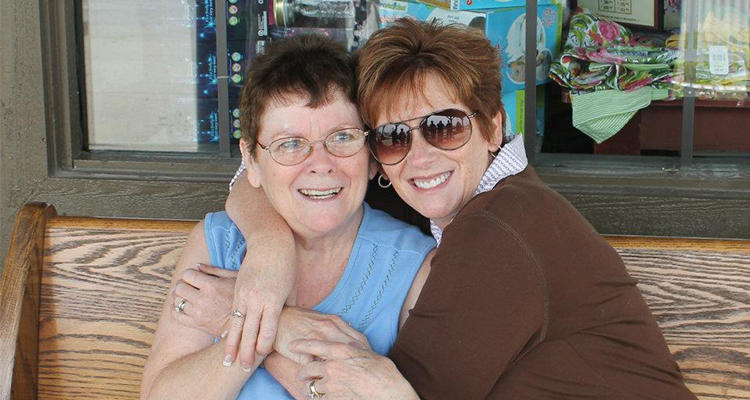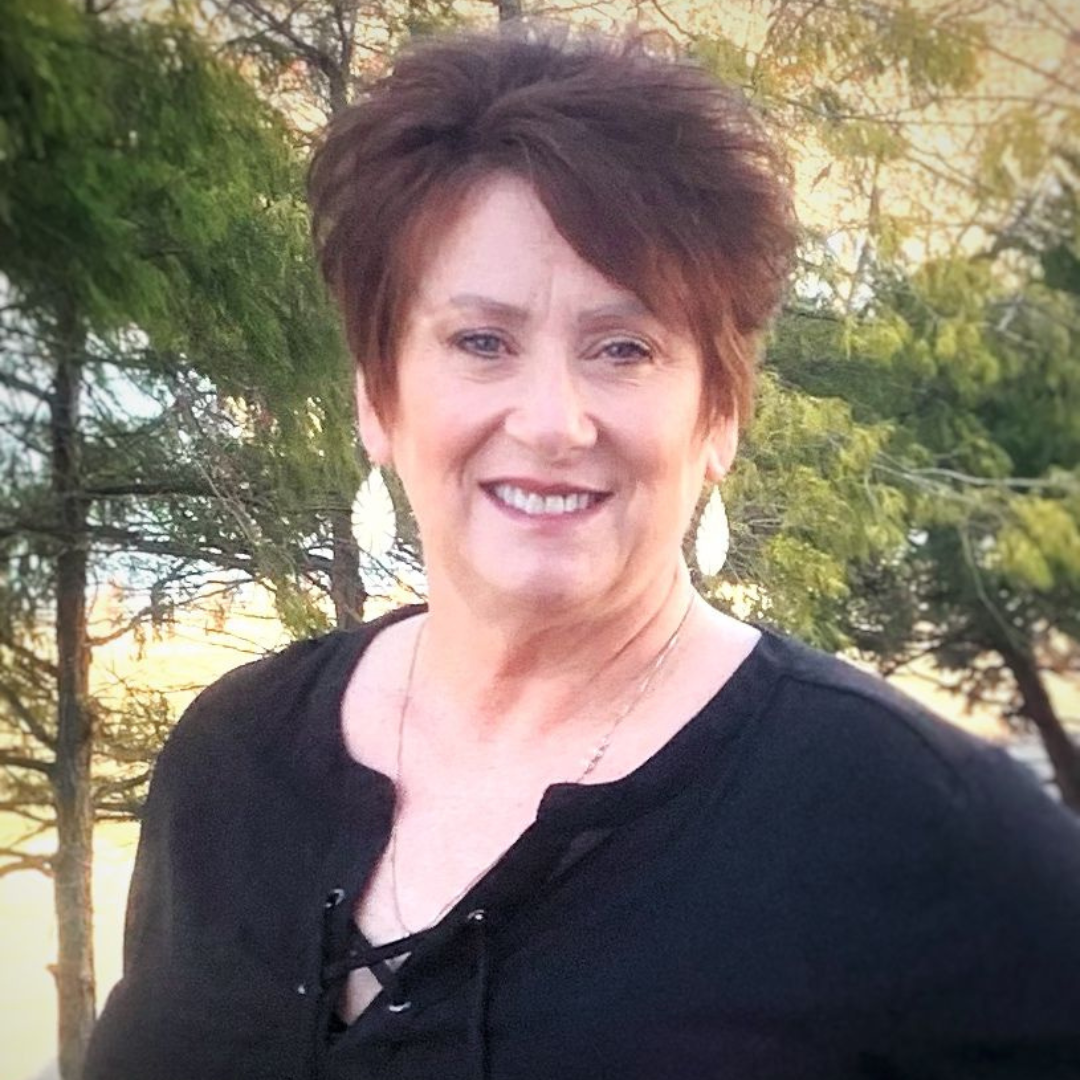Mom’s dance with the devil named dementia began around 2004. Dementia is a cunning fellow when he first appears — a forgotten word or two, a misplaced set of keys, a question repeated once too often — all these things seem harmless enough.
But these innocent occurrences don’t adequately foretell the havoc this monster is quietly wreaking in a loved one’s mind. The disease silently strips a person of her memories, her intelligence, her skills and her dignity as it snakes its way through her brain, weaving the dreaded plaques and tangles with the grey matter just as a loom intertwines two threads.
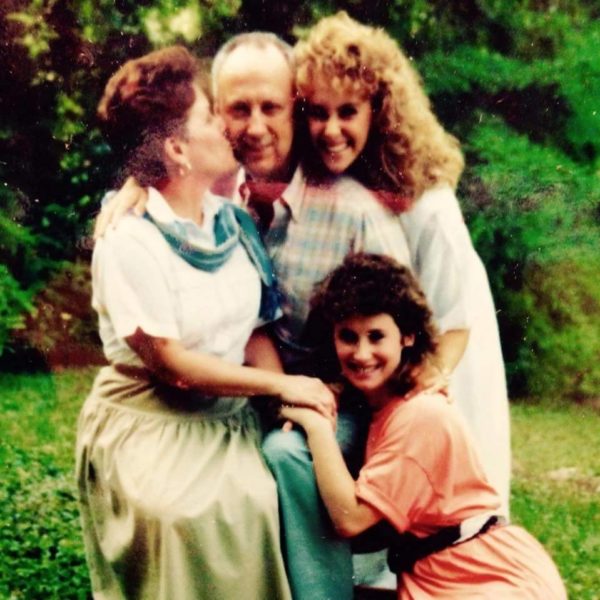
By the time we were given a definitive dementia diagnosis, the damage was done — our beloved mom as we knew her, was already as dead as if we’d laid her in the ground. My wonderful, fun-loving mom, who taught me that life often requires you to “make your own sunshine,” no longer knew sun from rain. Or me from my sister. Or our dad from an interloper. Dementia itself is an interloper; an unwanted and uninvited intruder stealing a person’s very soul.
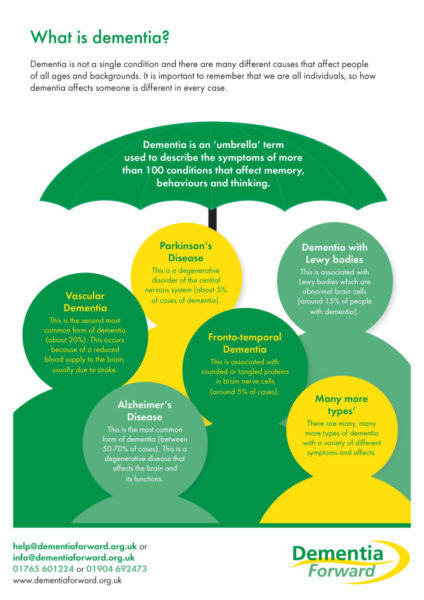 Often referred to as “the long goodbye,” dementia causes you to grieve a person’s loss repeatedly over the course of time. The first grieving period for me began with Mom’s diagnosis. Though not at all surprising to our family, it was devastating nonetheless.
Often referred to as “the long goodbye,” dementia causes you to grieve a person’s loss repeatedly over the course of time. The first grieving period for me began with Mom’s diagnosis. Though not at all surprising to our family, it was devastating nonetheless.
Just about the time I was coming to terms with the diagnosis itself, Mom forgot who I was and began to hate me and blame me for everything that was happening to her. This period of time was a whole new type of grief unlike any I’d known before. Though I understood that Mom’s behavior wasn’t truly her own, it was nearly impossible not to take it personally every time she screamed, “I hate you!”
On what would be our final public outing, we took Mom to a favorite restaurant where she spent the first 10 minutes berating me for some imagined infraction. She interrupted her own tirade with a demand that I help her immediately to the restroom. While we were in the stall together so I could assist her, she began to yell, “Help me! She’s holding me against my will! Someone call the police!” Afterward, I steered her straight to the car while tossing some bills at the cashier to cover the cost of our untouched meals. I’ll be eternally grateful to the woman in the next stall who opted not to contact the authorities.
Then there was the time Mom escaped her house despite Dad’s watchful vigil and convinced a neighbor that she was the victim of a home invasion. I was called from work to the scene, where I found the police frisking my very upset 80-year-old father on the front porch of his own home.
There were many trips to the emergency room when Mom’s behavior became uncontrollable. I was often in charge of keeping her corralled and entertained through endless hours of waiting, explain over and over and over again exactly why we were there. During one of these trips, we were awaiting a procedure that would require sedation, so she was unable to eat or drink. When I refused her millionth request for a candy bar, she exclaimed for all to hear, “Girl, you’d better get some gumption, or you’ll never get out of the fifth grade!” There was no point in explaining to her that, by the grace of God, I actually did accomplish that feat back in 1973. I found that in dealing with dementia, laughter can often be a soothing balm on the open cracks of your broken heart.
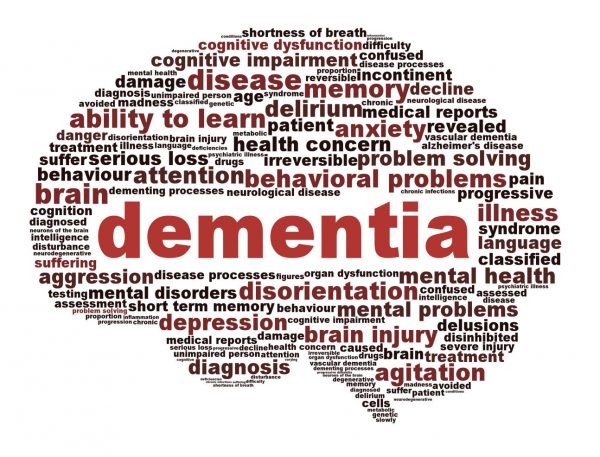 Mom had retired over 20 years ago after spending much of her life as the office manager at WKWK Radio. Her daily duties there included trips to the post office to send and pick up the mail. When Alzheimer’s made himself comfortable in her head, she was suddenly transported back to those years and would frequently fret that she couldn’t drive to the post office. To appease her, I had to promise that I would handle mail detail as long as she was unable to do so. We would often sort old envelopes and papers into stacks, pretending to “file.” On good days, that made her happy.
Mom had retired over 20 years ago after spending much of her life as the office manager at WKWK Radio. Her daily duties there included trips to the post office to send and pick up the mail. When Alzheimer’s made himself comfortable in her head, she was suddenly transported back to those years and would frequently fret that she couldn’t drive to the post office. To appease her, I had to promise that I would handle mail detail as long as she was unable to do so. We would often sort old envelopes and papers into stacks, pretending to “file.” On good days, that made her happy.
And though they were often few and far between, there were some good days. Days when Mom would laugh at something I’d say, and I could see the old spark in her eye and know she was “in there,” at least for a fleeting moment. Days when she would say, “I’m sorry I’m in a bad mood,” and stroke my hand. Days when chocolate and a big hug could make things better, just as that same combination did for me when she would dole it out during my teenage years.
That’s the thing — Mom loved me at my most unlovable — during toddler tantrums, smart-alec tween years, drunken college escapades. Mom was always there for me, loving me unconditionally, no matter how awful my behavior may have been. So it was my great honor to return that favor in her final years.
As difficult as it is to admit, I found Mom’s passing in 2016 to be a relief. We’d had plenty of conversations over the years about her last wishes, and I knew without a doubt that she would not have wanted to linger in the state of mental and physical deterioration she was in at that time. Because I’d been grieving her loss for many years before the end came, knowing she was at peace was more of a solace to me than a sorrow.
Mom taught me as a kid to look for the silver lining in every cloud, and dealing with dementia was no exception. I learned how to maneuver a world of make-believe with an adult the same way I might with a preschooler. I learned patience, strength and empathy far beyond what I thought I was capable of possessing. I learned that it’s possible to run on little more than caffeine and catnaps. I learned to see a tender side of my dad that I only glimpsed occasionally growing up. In fact, I have a much deeper, stronger relationship with my dad now, and I have the demands of dementia to thank for that.
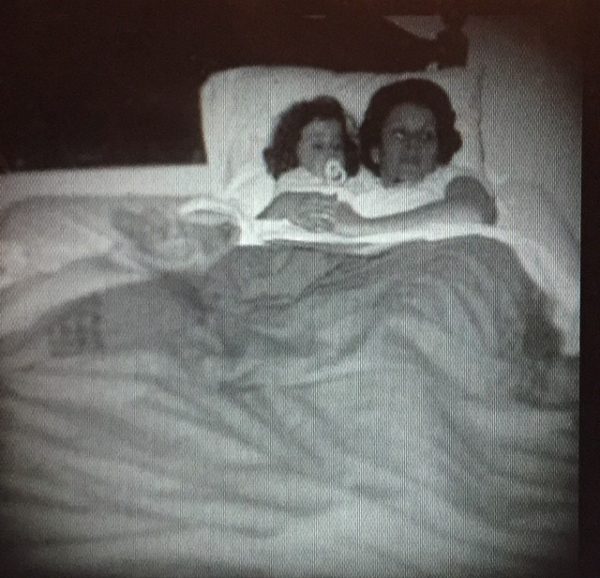
More than anything, though, I learned that dementia is far more complicated than I ever expected — there’s more to it than simply the inability to remember. Are there tears and heartache? Absolutely. But there are also many small miracles to witness — the way Mom didn’t recall our names, yet could still recite the Lord’s Prayer and belt out every verse of Kenny Rogers’ “Lucille.” Or the way she could accurately recall my grandparents’ address from years back that even I had forgotten. Or the way she could still read and play music even after she stopped speaking.
These and many other warm memories of Mom are still what sustain me when things get tough. The author Tahima Anan wrote, “It was like that with her mother — memory upon memory stacked together like the feathers in a wild bird, there to keep her warm, or when she needed to, to fly. She was the wings of her, the very wings.”
It’s true. Mom gave me wings, though at the end, she didn’t remember doing so. But I will always remember for both of us.
• A lifelong Wheeling resident, Ellen Brafford McCroskey is a proud graduate of Wheeling Park High School and the former Wheeling Jesuit College. By day, she works for an international law firm; by night, (and often on her lunch breaks and weekends) she enjoys moonlighting as a part-time writer. Please note that the views expressed in her writing are solely her own and do not necessarily reflect those of anyone else, including her full-time employer. Through her writing, Ellen aims to enlighten others on causes close to her heart, particularly addiction, recovery and equal rights. She and her husband Doug reside in Warwood with their clowder of rescued cats, each of whom is a direct consequence of his job as the Ohio County Dog Warden. Their family includes four adult children, their spouses and several grandkids.


